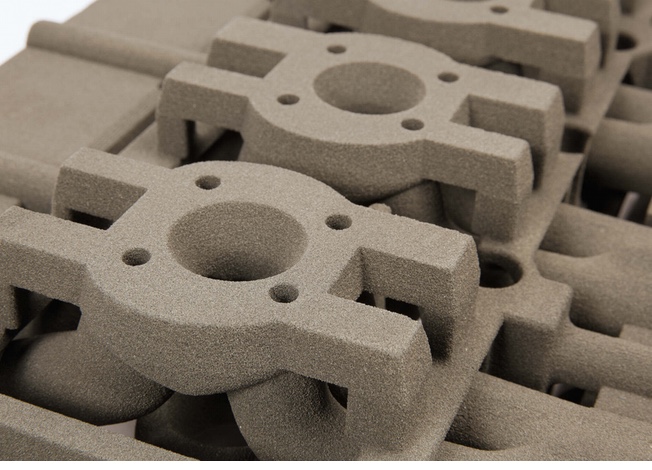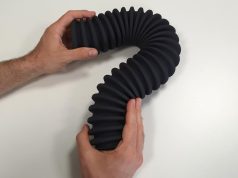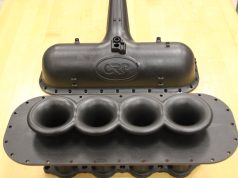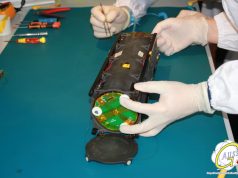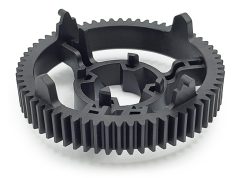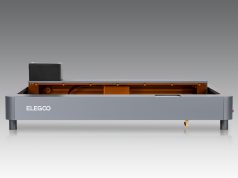At the EuroMold 2014 trade show voxeljet has presented new process developments for 3D printing. The Phenolic-Direct-Binding (PDB) method not only offers key advantages for sand printing but also allows for the production of ceramic molds.
Voxeljet’s research laboratory has been doing extensive work on phenolic resin binders for some time. The new binder offers a number of advantages for many 3D printing applications, as process engineer Dr. Florian Mögele can attest: “With this binder, we are able to achieve an incredible level of resolution and precision in 3D printing. At the same time, we have also made significant improvements in terms of stability and sand recycling. And: phenolic resin binders are ideally suited for processing ceramic and other materials.”
3D printed, complicated PDB sand molds surpass even the highest expectations. The Phenolic-Direct-Binding method, with its impressive accuracy and increased strength, is setting new trends, especially for complex molds with undercuts, elaborate details and very small radii.
The phenolic resin that is used is not toxic and allows for 100% recycling of non-printed particle material. In contrast to conventional binders, the PDB process does not require silica sand to be pre-treated, which means that it can be easily returned to the sand cycle. Another advantage: Phenolic-Direct-Binding also allows for the unlimited use of untreated silica sands with different pH values and ceramic materials.
Voxeljet expects to offer the new material-set for various printer platforms by the middle of 2015. Until that time, the company will be working on implementing and optimizing the process for relevant printer platforms: “In PDB, temperature management plays a key role in the quality of the components. In the coming months, we will empirically calculate the optimum parameters for all voxeljet printers. This ensures that the printers reach the best possible quality using a very reliable process,” says Dr. Daniel Günther, Head of Research and Development. Of course, interested parties can also obtain advance information about the performance of the new binder method on the basis of standardized benchmark parts.
Subscribe to our Newsletter
3DPresso is a weekly newsletter that links to the most exciting global stories from the 3D printing and additive manufacturing industry.


